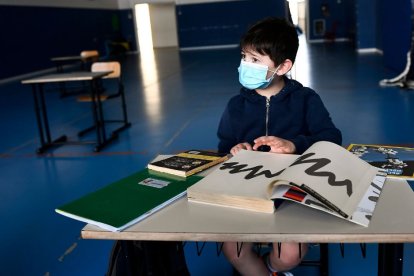Lockdowns affected children's emotional development
Almost half of parents consulted reported a decrease in their children's social and emotional skills. One of the causes, according to experts, was the lack of contact with friends.

Cordon Press
A survey conducted in the United Kingdom revealed how children were affected by lockdowns that were implemented worldwide in the COVID-19 pandemic. In the study, almost half of the parents consulted reported a decrease in their children's social and emotional skills, which manifested itself in poor behavior or being easily frightened.
Final Parents Experience of Labour Market IFS Report by Williams Perdomo on Scribd
Experts noted that school closures increased social and emotional difficulties. They claim that "the lack of contact with friends and extended family left some children without a trusted adult to turn to, and severe illness and death of loved ones increased."
The survey was conducted among more than 6,000 families with children between the ages of 4 and 16 by the Institute for Fiscal Studies (IFS) and the UCL Institute of Education, which analyzes the impact of the labor market during the pandemic.
"Overall, parents reported that their children’s social and behavioural difficulties increased during the first year of the pandemic. Nearly half of parents reported that their child had more socio-emotional difficulties in February 2021 than a year earlier," the study explained.
Parental job instability also affected children
Although the analysis details that children experienced more emotional instability in families where parents had more changes in their work situation, it also indicates that the general behavior of all children was affected.
"Labour market instability increased parental stress and led to declines in both actual and expected future earnings. These could be important channels through which increased economic uncertainty can have knock-on effects on children’s socio-emotional development," the survey highlighted.
Finally, the study stated that:
RECOMMENDATION





















